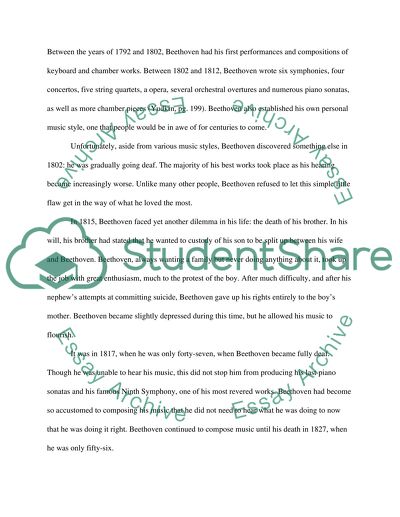Beethoven Essay Example | Topics and Well Written Essays - 500 words. Retrieved from https://studentshare.org/miscellaneous/1573801-beethoven
Beethoven Essay Example | Topics and Well Written Essays - 500 Words. https://studentshare.org/miscellaneous/1573801-beethoven.


